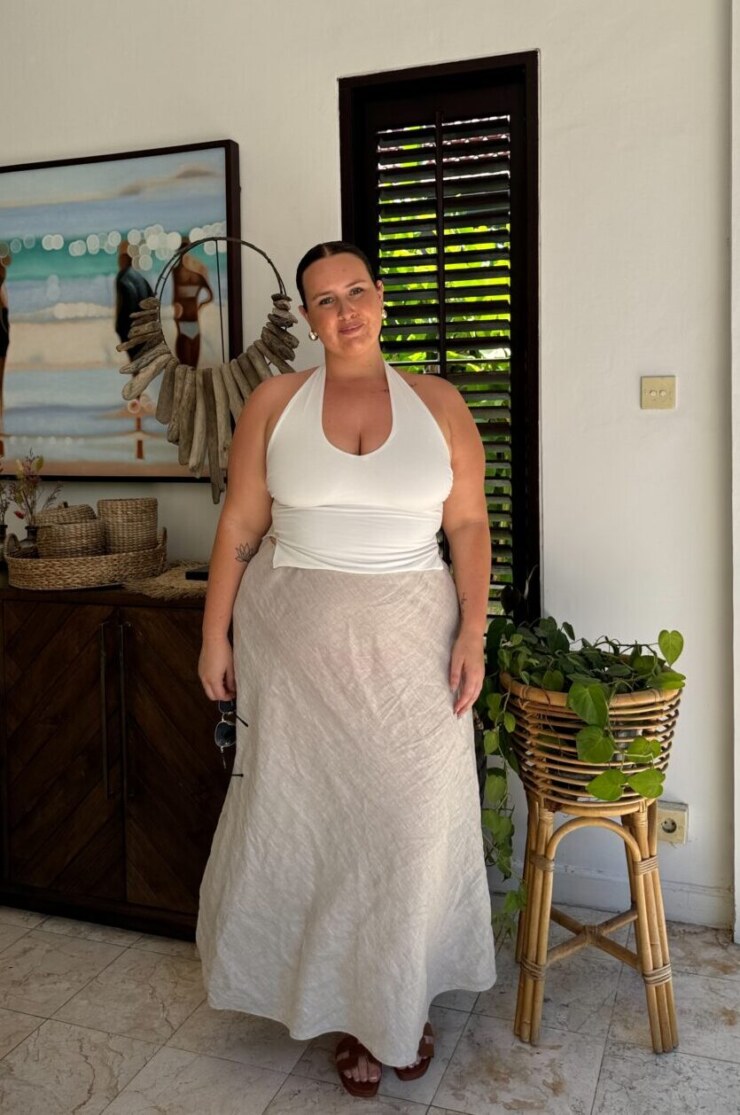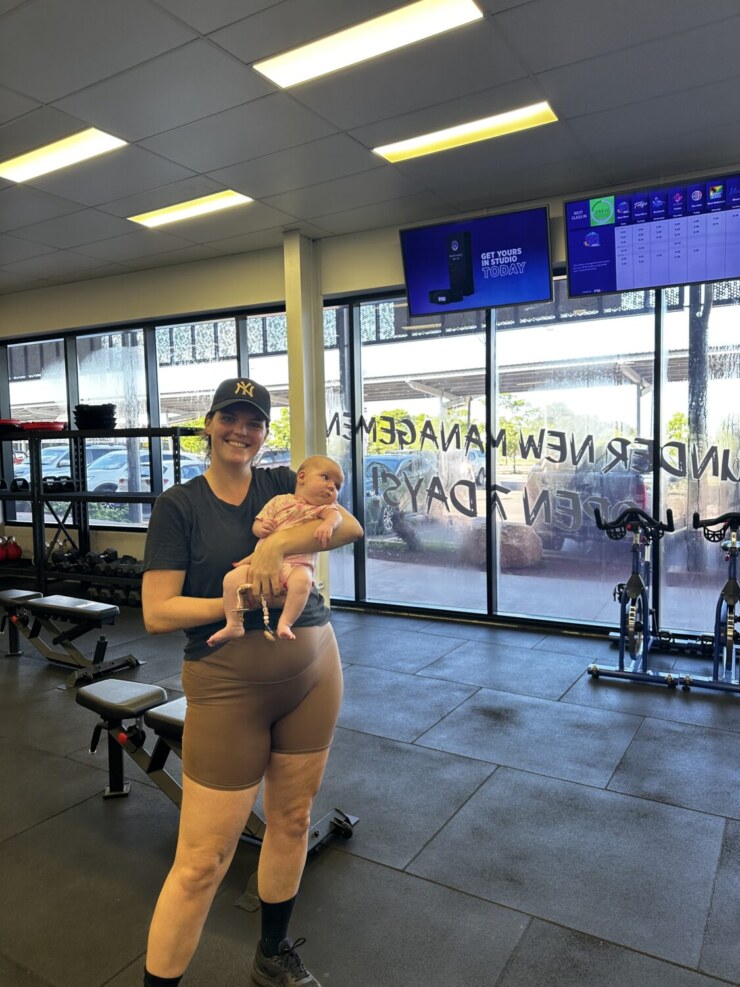Katherine mum Jessie Aranui (pictured) said just looking at a set of stairs will send her into a state of anxiety, but it didn’t happen before she had her children.
The mum of four said her postpartum intrusive thoughts centred around stairs, and would specifically focus on dropping her newborn down them.
“I would only need to look at a set of stairs and in my head, I’d imagine up to four different versions of falling down them or dropping my baby down the stairs,” she said.
“I even over thought about the fact that when you’re holding your baby in your arms you can’t see your feet, so you can’t see the step, and that really played on me.
“It would really flood my brain, and I would also vividly dream about it before giving birth.”
She said there was no history in her life of falling down stairs, or any accident involving stairs.
“It’s really distressing to have a beautiful new baby and be so consumed about a set of stairs for no particular reason,” she said.
Darwin mum Sarah Falls said her intrusive thoughts centred around dropping her baby down a storm water drain, while Hannah Burns said she couldn’t leave either of her daughters near a wall-mounted television for fear of it falling off and onto the baby.
Other mums said their intrusive thoughts included crocodiles taking their babies from their fishing boat, and dropping them on the ground while simply cuddling them.
Intrusive and dark thoughts before and after giving birth are almost universal, but now, psychologists want to find out why, with researchers investigating causes and potential treatments for perinatal intrusions.
The intense and vivid thoughts impact virtually all women during and after pregnancy, but little is known about their causes and ways to treat them.
Researchers from UNSW Sydney and the George Institute will redress this knowledge gap by embarking on a five year study into ‘perinatal intrusions’, which are thoughts of infant-related harm that women can have during the pregnancy, or more commonly, in the first year after childbirth.
Scientia Associate Professor Susanne Schweizer, who is leading the research in UNSW Science, said the type of thoughts that most women had were thoughts of accidental harm like imagining the baby falling off a changing table, or a pram rolling away, and were often quite vivid images which came out of nowhere.
“It makes sense from an evolutionary perspective that women are extremely sensitised to threats in the caregiving environment, because their infant is entirely dependent on them being alert to those threats,” she said.
But knowing that it may have evolutionary roots and may be designed to keep mothers and infants safe doesn’t stop the thoughts from causing distress.
“There is barely a handful of people worldwide looking into this at the moment, mainly because the perinatal period is a completely neglected area of research,” she said.
One part of the study will look at the role hormones play on a mother’s cognition and mood during the perinatal period to map hormone fluctuations across the perinatal period to see if any patterns emerge.
“We already know from menstrual cycle research that some women are very susceptible to the hormonal changes that occur during the cycle,” she said.
“For some, it’s so extreme that it can lead to actual symptoms of depression, complete hopelessness and an inability to be motivated to do anything.
“Identifying who is susceptible to hormone sensitivity, and why, is crucial to implementing early intervention, and even prevention, strategies to bolster women’s mental health during the peripartum.”
The study will track women across the perinatal period and measure intrusive thoughts and how they are associated with mothers’ mental health through a range of possible factors such as women’s thinking styles, hormone sensitivity and social connectedness.
“The work is much needed, and I hope the knowledge will ensure expectant parents as well as their healthcare providers are better prepared and informed about the range of experiences women may have in this unique period of life,” A/Prof Schweizer said.






